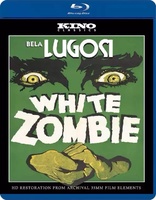White Zombie Blu-ray Movie
HomeWhite Zombie Blu-ray Movie 
Kino Lorber | 1932 | 1 Movie, 2 Cuts | 69 min | Unrated | Jan 29, 2013Movie rating
6.5 | / 10 |
Blu-ray rating
| Users | 2.0 | |
| Reviewer | 3.5 | |
| Overall | 3.2 |
Overview
White Zombie (1932)
While traveling to New York, the young couple Madeleine Short Parker and her fiancé Neil Parker are convinced by their new acquaintance Charles Beaumont to stay in Port Prince and get married in his mansion. However, Beaumont felt in love for Madeleine and his real intention is to convince her to call off the wedding. When he realizes that the time is too short to seduce her, he visits the local warlock Legendre (Bela Lugosi) , who gives him a drug to transform Madeleine into a zombie. She dies immediately after the wedding, and her corpse is disputed by Beaumont and his sick love for her; Legendre, that wants her for his team of zombies; and Neil, who is convinced by the local missionary Dr. Bruner that she might be alive. In the end, true love wins...?
Starring: Bela Lugosi, Madge Bellamy, Joseph Cawthorn, Robert Frazer, John HarronDirector: Victor Halperin
| Horror | 100% |
Specifications
Video
Video codec: MPEG-4 AVC
Video resolution: 1080p
Aspect ratio: 1.32:1
Original aspect ratio: 1.37:1
Audio
English: LPCM 2.0 Mono (48kHz, 24-bit)
BDInfo verified
Subtitles
None
Discs
25GB Blu-ray Disc
Single disc (1 BD)
Playback
Region A, B (C untested)
Review
Rating summary
| Movie | 3.5 | |
| Video | 3.0 | |
| Audio | 3.0 | |
| Extras | 2.5 | |
| Overall | 3.5 |
White Zombie Blu-ray Movie Review
"They are not men, monsieur. They are dead bodies...zombies...the living dead...corpses taken from their graves!"
Reviewed by Casey Broadwater January 13, 2013My fairly conservative parents watch The Walking Dead. Even my grandma can describe the basics of the "walker" mythos—the
insatiable hunger for human flesh, the transmission through biting, the headshot kills. So, I guess this is it: zombies are now decidedly mainstream, a
cultural trope recognized wide and far by one and all. It wasn't always so. The "zombi" was largely unknown in America until the 1929 publication of
explorer/journalist/occultist William Seabrook's The Magic Island, an account of the writer's adventures in Haiti and observations of voodoo
ritual.
The concept gained wider traction with Victor Halperin's low-budget 1932 film, White Zombie, which is generally considered the first feature-
length zombie movie. Of course, the moaning, bloodthirsty zombies we know and love now, as popularized by George A. Romero in Night of the
Living Dead, are a far cry from the quiet, hypno-drugged shufflers in Halperin's film, who are under the control of sugar-cane magnate "Murder"
Legendre—played by Bela Lugosi, shortly after his star turn in Dracula—and who mindlessly go about their tasks, soulless but generally non-
violent. And yet, you can easily see how they form the cinematic antecedent for all things undead. Despite some serious flaws in storytelling and
acting, White Zombie is one of the dreamiest horror films of the 1930s, part allegory for slavery, part anthropological curiosity, and part pre-
Hays Code metaphor for male sexual control.
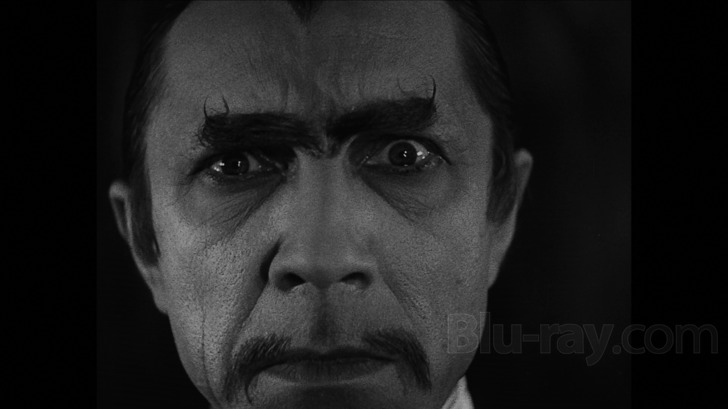
White Zombie opens with young banker Neil Parker (John Harron) and his fiancee, Madeleine (Madge Bellamy), traveling through rural Haiti by carriage, en route to the home of Charles Beaumont (Robert Frazer), a plantation owner they met on their ship from New York. Monsieur Beaumont has invited them to be wedded at his estate—he's even procured local missionary Dr. Bruner (Joseph Cawthorne) to officiate—but he has an ulterior motive. He's fallen dreadfully in love with Madeleine, and he's determined to have her by any means.
Beaumont has secretly turned to Legendre, a powerful mesmerist who runs a sugar-cane factory using his zombified enemies—mostly white state officials—as slave laborers. We're never entirely sure if Legendre's methods are supernatural or pharmaceutical, and there's a case to be made either way. The learned Dr. Bruner speaks of the island's powerful narcotics, but we also see Legendre carving voodoo dolls and seemingly commanding his blank-faced legions with his mind. The mystery is all part of the film's allure—a blurring of the real and the unbelievable.
Legendre slips Beaumont a potion, which he gives to Madeleine before the wedding, and shortly thereafter she faints into her new husband's arms, lifeless and cold. Neil falls apart after her funeral—there's a deliriously good scene where he gets drunk and sees double-exposed ghosts of his presumably dead dearest around the bar—and this is all part of Beaumont's plan to get him out of the picture. Legendre resurrects the girl to be Beaumont's corpse bride, but naturally—or, rather, unnaturally—she isn't the same. Her eyes are locked into a cold, far-away stare and she spends her days standing on the balcony and playing nocturnes on the piano with rote precision. Beaumont pleads that the effects be reversed, but "Murder" Legendre has his own ill motives, including an understated intention to "possess" Beaumont, whom he "has taken a fancy to." Ahem.
Alongside the sexual undertones—and look out for the scene with Madeleine in her skimpy negligee—there's inevitably a racial element as well. The film is drenched in an atmosphere of crumbling gothic colonialism, and whether it was intended here or not, zombies—with their souls and freedom taken away—are unavoidably symbolic of slavery. But given the time in which it was made, the film's attitudes toward race are unsurprisingly awkward now, with a witch-doctor portrayed by English comedian James Crimmins in blackface and a general lack of interest in the lives or culture of the native Haitians, whose folklore has been pilfered and repurposed for a story in which exotic "black" magic is used to create a "white" zombie. Then again, ethno-phobia has never really ceased being a theme in horror cinema. There might as well be a whole sub-genre called "white folks terrorized abroad."
When it was initially released, the film received largely negative reviews for its weak performances, and the acting is stilted and overly theatrical. But as film historian Frank Thompson points out in his audio commentary, this has the unintentional effect of enhancing the film's surreal mood; White Zombie seems to exist in some weird parallel universe not entirely attached to our own. Its reputation has increased in light of its status as "first zombie film," and it's probably easier today to overlook the film's faults—including one or two plot holes and some general confusion about the characters' motivations—and celebrate its merits. The mouldering set design, borrowed from other films shot on the Universal Studios lot. Arthur Martinelli's eerie black and white cinematography. The ghostly special effects work. And, of course, the legendary Bela Lugosi, perfectly devilish with a fu-manchu mustache and twirled up eyebrows, gazing out of the screen in tight closeup, hypnotizing us even now.
White Zombie Blu-ray Movie, Video Quality 
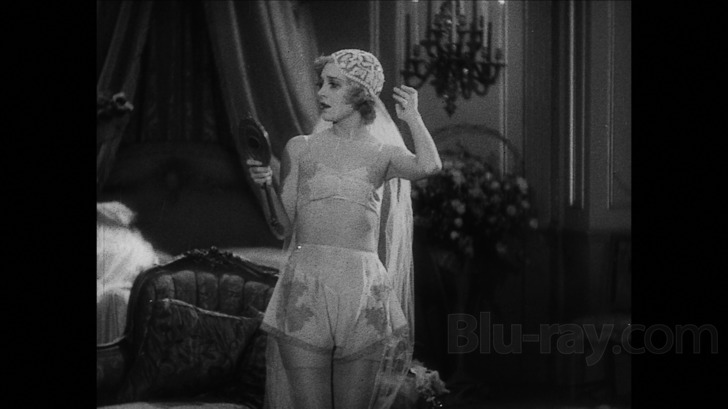
This release is interesting, particularly in regard to the film purism versus noise reduction debate. Kino's Blu-ray release of White Zombie
includes two complete versions of the film, both mastered from a 35mm negative—with two or three missing scenes taken from a 16mm print of
slightly, but noticeably inferior quality—and both presented in 1080p/AVC. However, one is "digitally enhanced" and the other is presented "raw." The
disc defaults to the former, which is absolutely slathered with DNR, removing all grain from the image, softening print damage like scratches and debris,
but—in the process—stripping the picture entirely of fine detail. The result is a film that no longer looks like film; it looks more like someone ran each
frame through the "brush strokes" filter in Photoshop, turning the film into a kind of moving painting. The effect is apparent even from a distance—
especially if you have a large screen—but up close it's atrocious. If this were the only version included on the disc, I'd be doling out some seriously low
marks right about now.
Fortunately, you can find the "raw" transfer as an option in the extras menu. Here, grain is wholly untouched, and although the print is very
noisy—and the print damage more visible—this version at least looks natural and filmic. It's also drastically better than previous standard
definition releases, which—given that the film is in the public domain—were typically of less-than-stellar quality, turned out quickly in cheapo editions.
Produced by Holland Releasing, Kino's version has much better refined detail—see the closeups of Lugosi's eyes, in particular—and balanced, more stable
contrast. The "raw" version does seem slightly more dim than the digitally tweaked version, however. As far as I'm concerned, this is now the definitive
transfer of White Zombie, and it's a shame that it's hidden in the extras. Do note that the "raw" cut is approximately one minute shorter,
although I've yet to determine exactly which scenes were trimmed or cut. I didn't sense anything missing.
Screenshots 1-10 are from the "raw" print, and 11-20 from the "digitally enhanced" version.
White Zombie Blu-ray Movie, Audio Quality 
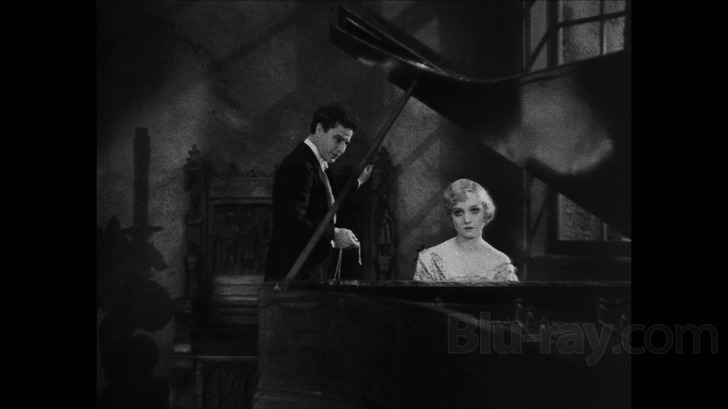
Both version of the film feature an uncompressed Linear PCM 2.0 track—presumably mono—and the quality is typical for a low-budget horror feature that's now 80 years old. That is, you can expect plenty of audio damage, some barely noticeable, some jarring and/or abrasive. While it's clear that some work has been put into attenuating pops, crackles, and hisses, they're still here in varying levels of intensity, along with moments of high-end harshness in the music and sudden, complete dropouts in a few scenes, where bits of dialogue go missing. Distracting? A bit, but none of this renders the film unlistenable, especially if you're already used to watching movies from the early sound era. Given the condition of the source materials, the audio is probably as good as it's ever going to be, and in general the dialogue is moderately clear and easy to follow. Some subtitles would help, but Kino has neglected to include any—my only real complaint.
White Zombie Blu-ray Movie, Special Features and Extras 
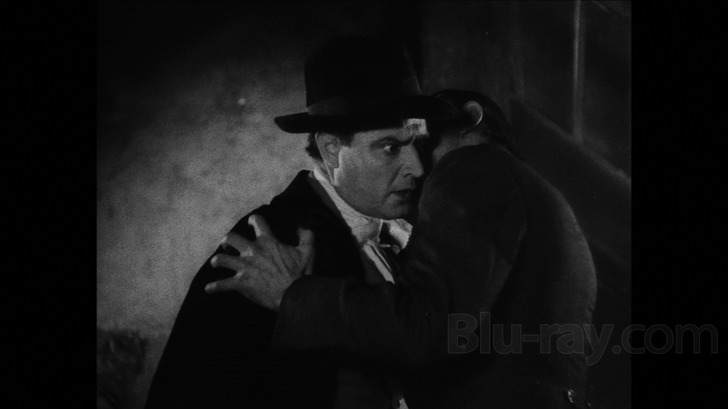
- Audio Commentary: Film historian Frank Thompson gives an extremely informative follow-along chat that touches on the birth of zombie movies, the actors' before-and-after careers, and myths about the film's production. A worthwhile listen.
- Bela Lugosi Interview (HD, 6:51): A brief but fascinating interview with Lugosi—a completely staged interview—filmed around the time of White Zombie's production. Lugosi talks about emigrating from Hungary, studying American slang—Cats whiskers! Boloney! And how!— and characterizes himself as a "lone wolf." A great addition to the disc, playing up Lugosi's image as the "mystery man."
- Trailer (HD, 2:46): A trailer for the film's 1951 re-release.
White Zombie Blu-ray Movie, Overall Score and Recommendation 
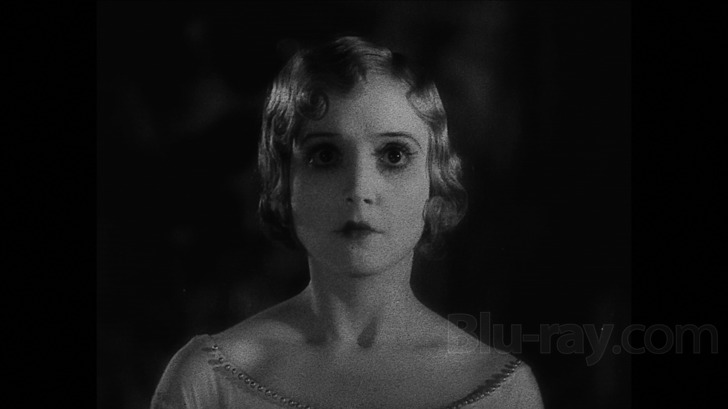
Here it is—the first zombie movie! 28 Days Later, Dawn of the Dead, The Walking Dead—all have the cinematic DNA of White Zombie in their blood to some extent. Eerie and surreal, the film still spooks today, some 80 years after its debut. As a public domain title, White Zombie has been subjected to some shoddy VHS and DVD editions in the past, but Kino-Lorber remedies that with a new "raw" transfer that presents the film in its best form yet. (Just steer clear from the default "digitally enhanced" version, which has been wiped of all its filmic texture. You'll find the "raw" transfer in the extras menu.) The disc also includes a great audio commentary and an entertaining staged interview with Lugosi, who scares a young female reporter off with his "mystery man" persona. Recommended for all fans of horror history.
Other editions
White Zombie: Other Editions

White Zombie
Cary Roan Special Signature Edition
1932

White Zombie 3D
1932

White Zombie 3D
1932

White Zombie
1932
Similar titles
Similar titles you might also like

Frankenstein 4K
1931

The Black Sleep
1956

The Corpse Vanishes
1942

The Body Snatcher
1945

Night of the Living Dead 4K
Theatrical (UHD/BD) and Workprint (BD) versions
1968

Dracula
Includes "Drácula"
1931

Black Sabbath
AIP Cut | 60th Anniversary
1963

The Plague of the Zombies
1966

Black Sunday 4K
The Mask of Satan / La maschera del demonio 4K
1960

Scars of Dracula
1970

Dracula A.D. 1972
1972

The Old Dark House
1932

The Comedy of Terrors
1963

Zombie 4K
Zombi 2 / Zombie Flesh Eaters
1979

Let's Scare Jessica to Death 4K
Slipcover in Original Pressing
1971

Beyond the Darkness
Buio Omega
1979

Hatchet III
2013

Candy Corn
2019

Zombie Island Massacre
1984

Blood Ceremony
The Legend of Blood Castle | Standard Edition | Ceremonia sangrienta
1973
